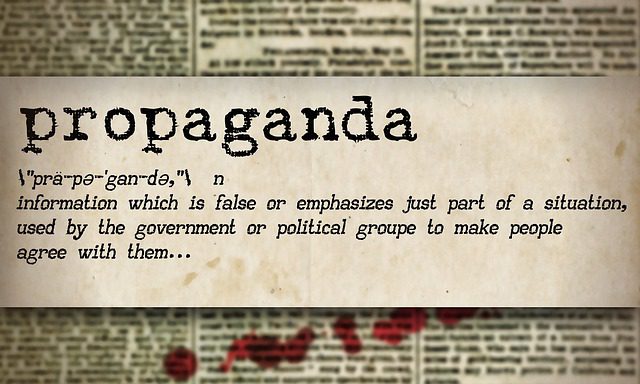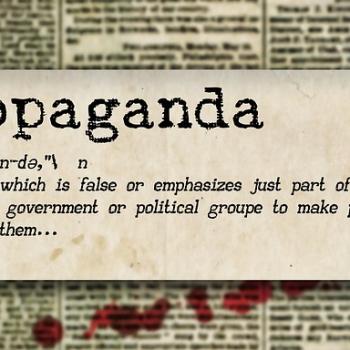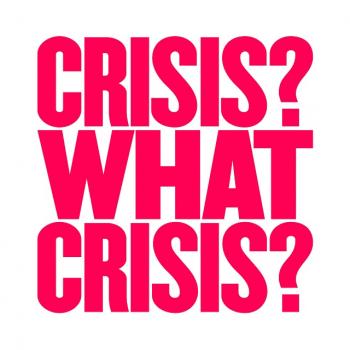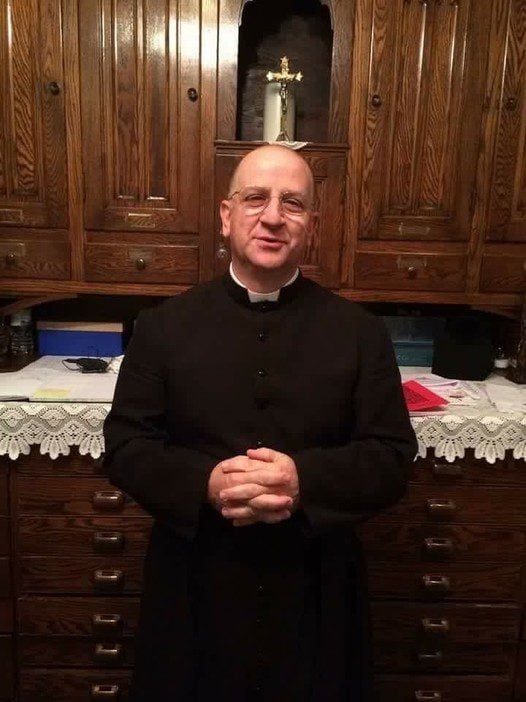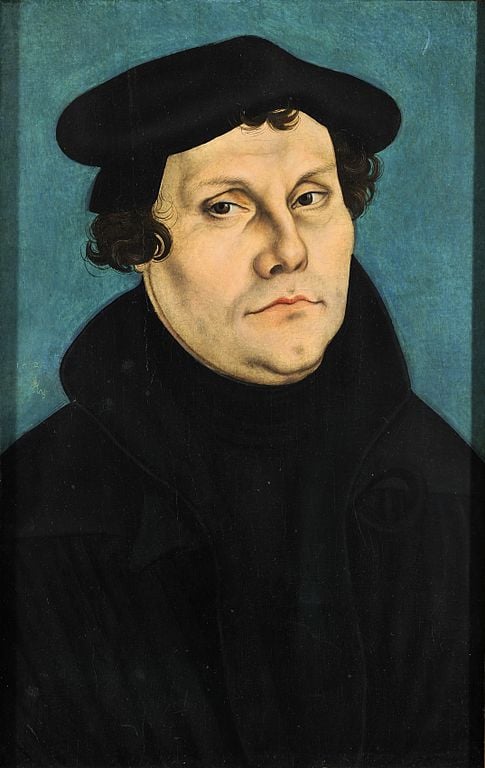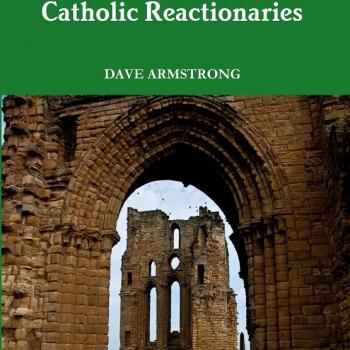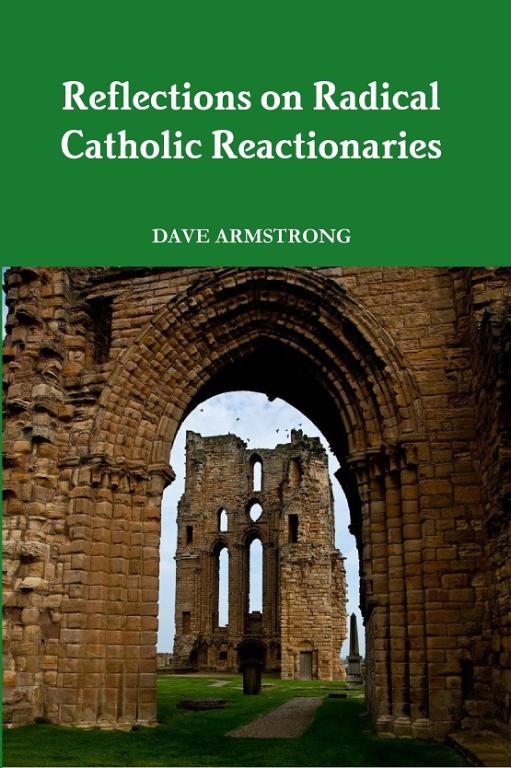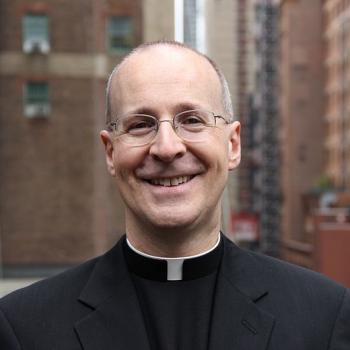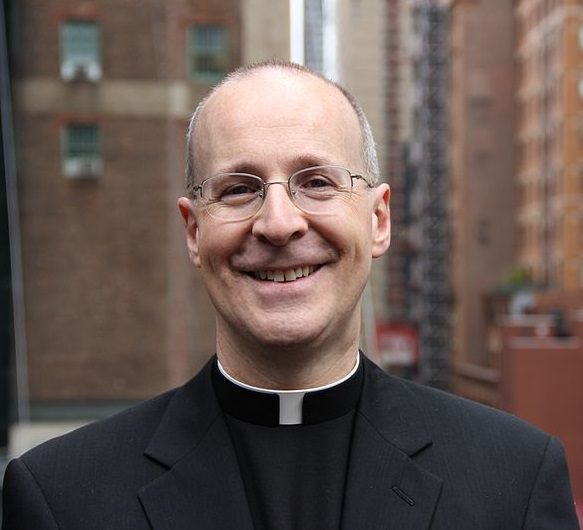
This exchange occurred in the combox underneath my post, Traditionalist Fr. Chad Ripperger Critiques Traditionalism (7-21-21). The words of Ryan Close will be in blue.
*****
“Most” [traditionalists / TLM attenders] do not reject Vatican 2. Some do.
Maybe it’s not “most” but it is a troubling amount. Do you have an opinion as to the approximate percentage in TLM circles?
I don’t know. I heard Christopher Ferrara say that it was just 12 people in the middle of Kansas. I think he is dismissing it too readily. I acknowledge Fr Ripperger’s critique.
But I think the majority of those that attend the TLM just want to raise their kids in a setting where the atmosphere of reverence and beauty teaches them the faith. Honestly, most young people, even faithful who attend NOM, don’t really like the modern hymns and kitchy music. It is all so cringe worthy. I think if you attend the TLM, it’s probably because you take the Faith seriously and want to worship in a place that comports with that seriousness and in circumstances where the ceremony honors the sacrifice of the Mass. They worry that a Mass that is irreverent or sloppy may inculcate the thought in their children’s minds that what we are doing here is not that important at all, that the sacrifice of Christ and the whole Christian thing is just a kind of cringy joke.
Good Catholics who attend the TLM are being faithful. The proof just is the fact that they are attending the TLM in an approved diocesan Mass and not fleeing to the SSPX. They want to be in communion with and in submission to the Pope. And for that they are being punished. It seems unfair.
Related question? In order to not be a reactionary, I know we must submit to — of course — all ecumenical councils and the Ordinary Authentic Magisterium of the Pope and the Bishops. We cannot formally resist the Pope. But, does this mean that we have celebrate everything that the Pope does as a good thing? Should I tell all my friends how amazing and wonderful TC really is even though my heart is broken? Or can I feel and voice my feeling of being unjustly punished, even though I will submit? How far must I take not being a reactionary?
Well, I would say that Steve Skojec, formerly of One Peter Five, knows the trad / reactionary community pretty well, and he thinks it is beyond repair and not worthy of even continuing. That’s why I documented his own thoughts. Fr. Ripperger’s critique indicated the same thing. The reactions of many people clearly prove that they are in the reactionary camp. I documented that too.
That would be my argument: it’s a very serious problem, based on the reports of people who would be in a position to know from the inside that it is. It’s not just those of us outside coming up with arbitrary opinions, with no knowledge.
I have defended this pope 200 times and have observed the traditionalist community for over 25 years. I know that this thinking is rampant within it. Maybe it’s not evident in a parish after Mass eating donuts, but it certainly is online.
It is true that most Catholics at the TLM are orthodox. But denial of the indefectibility of the pope and of the Church are both serious heresies, and many have those views. The pope cannot promulgate heresy, according to Vatican I, in the same section that defined papal infallibility.
The pope can be criticized by the right people for the right reasons, in the right spirit. 95% of papal criticism today does not fall under those categories. I know, because I am out here defending the pope, just as I did the two before him. Taylor Marshall in his atrocious book implies that Pope St. Paul VI had an ongoing homosexual lover. My own main publisher put out that trash.
Pope Francis is not “punishing” a person like you who simply prefers the Old Mass. He is concerned that the whole movement is infused with quasi-schism and even some heresy.
Can I ask a question? Your blog, as well as Timothy Gordon’s vlog, have really helped me understand these issues more. I can see what you are saying about the necessity of TC in a certain sense. I even acknowledge there is a problem, especially if even Fr. Ripperger called it out.
But how widespread is the problem? Do we have the numbers? What percent of the faithful who attend the TLM are really guilty of this divisive attitude or denying Vatican II? Should all the good and faithful Catholics who do not reject Vatican II and try to be loving and welcoming and evangelical be punished for the rigidity of a minority of perhaps vocal reactionaries?
You can always ask a question here.
Again, as I answered another of your comments: the observations of Skojec and Fr. Ripperger and my own observation as an apologist and critic of the movement for a quarter-century show that it is very widespread. In fact, it’s getting so bad that the anti-papalism in particular is spreading into the non-traditionalist community and is showing up (in some ways) in people who were my own mentors, like Karl Keating, Scott Hahn, and Fr. Peter Stravinskas, and others like Fr. Mitch Pacwa. It’s openly shown now at EWTN; my publisher, Sophia Institute Press, Phil Lawler, many others. You feel heartbroken? So do I: to see so many whom I respected and admired (and still do in many ways) going down this path of adopting these quasi-schismatic views.
Three more things.
You point out how vocal this reactionary minority are. I wonder why faithful traditional (non-reactionary) Catholics such as yourself do not try to address legitimate scandals in a respectful and and faithful manner. The abortion issue comes to mind. There are bishops that are complicit in the abortion industry through their failure to call out leaders who actively promote child murder. How do we ask the hierarchy to be faithful to oppose abortion without straying into “reactionary-ism”?
I wrote about that very issue five weeks ago, in fact: Cowardly (?) Bishops, Pro-Abort Biden, & Holy Communion [6-22-21]. That’s how I would do it (and did do it).
What about stuff like “God wills a plurality of religions”? Saying that it’s God’s permissive will is just “Pope splaining”, not to be disrespectful. Is our responsibility as Catholics to always explain away the very problematic statements of the Pope or other bishops with ever more elaborate mental gymnastics or can we say, “that is contrary to the faith”?
I explained the “plurality of religions” thing. It’s nothing. It’s a fallacy, a falsehood, and simply the usual traditionalist collapsing of all ecumenism into indifferentism. If you haven’t read my paper on it, see: Pope Francis & the Diversity of Religions.
People need to be fair to the pope and respect him. If you wonder about something, read both sides, not just the critics. Give him a fair shot. I have written 200 defenses of him: and collected 282 more defenses from others.
I’ll guarantee you that almost all “perplexities” and “confusions” about various issues are explained somewhere in those 481 articles. You owe it to yourself to read both sides. Any person is owed that much who is being blasted (and yes, widely slandered and lied about); how much more the Holy Father?
Second, part of the problem some people are having with TC is that it seems, like I said, to punish faithful Catholics for the sins of the reactionaries. That feels abusive. Like I said, not every one who attends the TLM is a reactionary. To be punished unjustly, and yes, submission and obedience is our duty, still feels like abuse. Is it divisive or schismatic to feel and voice your feeling that your are being abused?
Third, part of this feeling of being abused unjustly is how good and faithful and orthodox Catholics who happen to love the beauty of the traditional rites are being singled out while others who support abortion, homosexual agenda, women’s ordination, and other actual heresies are embraced and celebrated. That doesn’t feel right.
I currently attend the Byzantine Liturgy on Sunday’s and NOM on weekdays. Beside the precious and life creating mysteries of Christ, the Holy Sacrifice of the Mass itself, nothing about the NOM inspires me. The architecture is sparse and boring. The verses and responses are simply said instead of being even said on a single note which would elevate them just a little. The whole experience is very banal and pedestrian rather than glorious and uplifting. Even Pope Francis’s letter mentions liturgical abuses in the NOM contrary to the council and the rubrics.
I think that the NOM can be done right. I’m not a TLM only’st. I want more NOM, just done reverently and beautifully. It just seems so weird that the vast vast vast majority of NOM’s I attend are so banal and flat. It is like there was a coordinated effort to push a particular kind of celebrating the NOM which is most likely to distance it from the reverent and beautiful. I pray for a future Roman Rite, unified and strong, retaining the best of both the TLM and the NOM. In the vernacular, but respecting tradition. Participatory but also reverent, beautiful, and other worldly, like the Byzantine Rite.
Again, you use this language of feeling “punished.” Have you been deprived of being able to attend the Mass of your choice? Do you have to drive 100 miles? Has your bishop shut down your parish? If not, then what is the issue. If all it is is a desire to worship in the older manner, and you can, just go do so and be happy and content.
But if you can’t do so, I can see that this would make you angry and hurt. I think you should be able to worship as you please. That has always been my position, for 30 years since my conversion. If you don’t know my background: I attended Novus Ordo Latin Mass for 25 years in a beautiful German Gothic Revival church building built in the 1880s. I totally get that. I want reverence and beauty and I detest all abuses at Mass with a passion and refuse to go to any parish where they occur.
Well, I see that you are attending the Byzantine Liturgy. That’s simply Eastern Catholicism. It’s not affected by Traditionis at all. So I don’t see how you are personally affected by whatever will change as a result.
If you detest the Pauline Mass, then don’t go. Just say extensive prayers every morning or do the liturgy of the hours or eucharistic adoration somewhere. Read the saints. Say the Rosary. Volunteer in a soup kitchen or something. Why go? I certainly wouldn’t if these Masses are as “banal and pedestrian” as you say. Find a daily Byzantine Liturgy if it is offered.
Again, I agree with you that many ordinary Masses suffer from certain defects of lack of reverence. There is a certain “banal” spirit. I saw it in our local parish that we don’t attend regularly. I agree wholeheartedly with your last paragraph.
Thanks for answering. Can I ask a clarifying question? The Pope is not punishing me then why am I being deprived of a spiritual good? And how does suppression of a liturgical rite suppress the heretical tendency? It seems a bit indirect. Why not allow the Old Mass and censure and excommunicate the heretics? This seems passive aggressive and harsh. It further cements and promotes the hard feelings and resentments that have fostered this heretical tendency. Why couldn’t the Pope have accompanied those who are nourished by the old rites? Why not promote the widespread application of reverent and beautiful NOM to give traditional minded Catholics an alternative to extreme Trad communities?
Thanks for the help processing.
Clarifying questions are okay, too. I will probably make this a blog dialogue, because it’s been good.
I don’t see how you are “deprived”, from what you have said. You attend the Byzantine Liturgy, which you (and many) find spiritually edifying in all respects. Great. So your beef is with a relatively “unspiritual” daily Mass. Simply find another parish with a more reverent one. How hard is that? Do you live in or near a big city?
The pope isn’t suppressing; he is regulating for the good of souls because of the errors that have sadly arisen and are widespread. He’s simply giving bishops what they were asking for. It seems that any criticism should be directed towards bishops who (if a case can be made) have exercised their powers unjustly and unfairly without proper cause.
The Church is slow to excommunicate, for whatever reason (good or bad). It has done so only in the most extreme cases. Do you think if Taylor Marshall, Peter Kwasniewski, Abp. Vigano (the most reactionary bishop), and Steve Skojec were all excommunicated, that the reactionaries would lay down their arms and repent? No. It would be an immediate firestorm, and they would be practically lionized as martyrs. That would accomplish the opposite of what is desired.
I think we should promote reverence and beauty in all Masses. Those are always the kind that I have attended.
Thank you for dealing with me with patience and fairness.
No, there are no reverent NOM in my city. We only have six parishes and they are equally the way they are. I did not say they were “unspiritual.” I said they were lacking reverence and beauty and feel banal instead of being uplifting. Yes, I can go to the Byzantine Rite, but I desire to worship according to the Roman Rite. I would love a reverent and beautiful NOM in the vernacular.
I don’t know if excommunicating these men would help, I’m just pointing out that this an indirect way of getting at them that really does harm to orthodox Catholics who are nourished by the reverent and beautiful masses. And it seems that this kind of “suppression” will increase resentment and martyr complexes.
Besides the lack of beautiful and reverent worship, I think the trad movement is driven by apparent errors that are not clarified, such as: God wills a plurality of religions, allowing divorce and remarriage, the Pachamama scandal, breeding like rabbits comment, the Scalfari interview where it was reported that the Pope said Jesus wasn’t divine. All of these may have explanations, I’m not saying that the Pope has taught anything heretical, but why can’t these things be clarified in a way that ensures and confirms the faithful.
If orthodox Catholic faithful could hear the Pope supporting them, loving them, confirming them in the faith instead of confusing them, allowing them beautiful and reverent worship, then we wouldn’t have this problem. Instead, you say the Pope plays nice with actual heretics to avoid schism with them and treats orthodox Catholics like they are the problem, intensifying their feelings of isolation and confusion. I know Catholics must be submissive but constant abuse does not really encourage loving submission.
That’s unfortunate [if he can find no “reverent” Masses in his area], but it has little to do with the controversy over Traditionis. This would be the jurisdiction of your bishop. If you believe you are deprived, it would fall on him, from where I sit.
I already addressed the plurality thing. It’s a nothing burger. Nothing has changed on divorce whatsoever. The question bandied about was merely whether certain divorced people could receive Holy Communion under very special and unique conditions. That was already discussed under Pope Benedict and is no innovation of Pope Francis. The Pachamama myth is based on a host of misperceptions and outright lies. I’ve written about it some ten times or so. I’ve written about the rabbits comment. I don’t see that the pope did anything wrong there. Scalfari can’t be trusted because he takes no notes. I have agreed that the pope shouldn’t do interviews with him. But it doesn’t prove that Pope Francis believes all this nonsense that is reported. That has to be documented if true. But it isn’t true.
The pope has chosen silence in the face of serious charges like these. He probably figures that his defenders will show the falsehoods involved. I’ve done all this in my own work, and I’m only one person. If trads would simply read what I’ve written, they would be a lot less confused.
I don’t see “constant abuse.” We have very different perceptions on that. When Pope Francis has criticized traditionalists (I’ve examined several examples that were brought up), he went after the excesses and corruption, just as I have done, and as Steve Skojec and Fr. Chad Ripperger have done. He didn’t throw the baby out with the bath water. I would say he is far less critical of traditionalism than they are.
This is helping me a little and I am very very appreciative.
Glad to be of service to you. Praise God. But before I answer this, I have to figure out whether you are Catholic or Orthodox. Here you say you are “a submissive obedient Catholic who believes the Pope can not teach heresy.” But yesterday on another site you wrote: “I am Orthodox by the way, and I have to undergo my own mental gymnastics to reconcile the ancient faith with the contemporary Orthodox Churches.” So which is it, and how is this not a contradiction, at the very least?
I just discovered your blog and I promise to read your posts about the things that bother me.
I think that will help you. Maybe also “a little” but I hope, a lot!
But I don’t think I am explaining just how I feel hurt and betrayed. First, is it a sin to feel hurt and betrayed?
It’s not a sin per se, but I think two things about that:
1) it’s largely based, in my opinion, on misunderstandings and false information that is spewed daily by reactionaries and other fellow pope-bashers. Knowledge is power. The more knowledge one attains about these things, I think the less hurt they will feel.
2) it’s largely a function of postmodernist thought, whereby the front and center thing is always “how I feel” and subjective matters of that sort. Catholicism is not a “touchy-feely” belief-system, although passion and experience are certainly part of it. We believe what we do (as expressed in the Creed at every Mass) and it includes an indefectible papacy and Church.
We can feel hurt and betrayed if it is warranted, but in this case, I think it is not. To the extent that you think it is, as I have already indicated, I think your ire and disagreement has far more to do with your bishop (assuming you are a Catholic, because you say yo are Orthodox too), rather than Pope Francis.
Grumbling and complaining too much, and irreverence towards the pope or Church are, however, sins.
Second, just because people can explain away these difficult sayings and scandals doesn’t change the fact that many Catholics were scandalized and deeply hurt.
You cynically call it “explain[ing] away” as if papal defenders like myself are merely engaging in sophistry and special pleading. I call it “explaining” period; telling the truth and speaking out against the perpetual slander of this pope.
I understand what you are trying to say about TC simply allowing bishops to regulate the TLM. That if there are no reverent masses in our are that this isn’t Pope Francis’ fault.
Good.
But, as I was trying to say, the problem is the perception of a double standard that seems to push orthodox Catholics to the margins while embracing heterodox voices and causes within the Church.
I have agreed that liberals ought to be much much more regulated and rebuked also, so this is not at issue between us. That said, it has no direct bearing on this decision about the TLM.
For example, you said that in Amoris Laetitia Pope Francis did not allow the reception of Holy Communion by civilly divorced and remarried people.
He didn’t for the entire class, only for very few extraordinarily complex situations.
But many people do think he taught this and they are very happy about this doctrinal change. The document “The Misuse of Amoris Laetitia to Support Errors against the Catholic Faith: A letter to the Supreme Pontiff Francis, to all bishops in communion with him, and to the rest of the Christian Faithful” shows how this is a misuse of Amoris Laetitia. But it also asks His Holiness to formally correct those who misuse his words. We haven’t seen this.
The pope deliberately chooses the response of silence when he is vastly misunderstood or outright attacked, called a heretic, etc. See two papers [one / two] by my friend Dr. Pedro Gabriel about this.
As to Amoris Laetitia, word-search “Amoris” to find 16 articles on it, on this page of mine.
So heterodox causes misuse the Pope’s words and get away with it while those who love the Latin Mass, who happen to believe every word of the Bible, the Ecumenical Councils, the Catechism of the Council of Trent, and the Catechism of the Catholic Church and want to conform their lives to Catholic truth are dealt with in a harsh manner.
Already dealt with . . .
As another example, I. England, in a diocese where the TLM has actually been suppressed, in that same diocese there are LGBTQ+ Masses. It’s a double standard.
It is in that diocese. It’s a double standard of the bishop.
This double standard, whereby traditionalists are treated harshly while heterodox on the progressive side, priests who promote homosexual lifestyles, politicians who have openly defied the Church in publicly supporting the murder of thousands of children and dared the bishops to excommunicate him get away with all of it or are celebrated and lauded as exemplary priests and good and devout Catholics.
This has to be explained.
I have given my explanation. Bishops fear schism, because these liberal errors are so widespread. And they like to be popular. See the classic 1995 article, “Conservative Bishops, Liberal Results”, by James Hitchcock.
I know, what you are saying is that the radical traditionalist movement is a huge problem, a cancerous and schismatic blight on the church that must be dealt with. I can agree that there are certain people who fit this description but I don’t think we have the numbers to prove that this represents all of faithful Catholics who attend the TLM.
No one is saying “all.” Exaggerating doesn’t help anything or anyone. We are saying it is significantly high enough to be concerning and alarming in terms of Church unity and possible schism. People like Skojec and Fr. Ripperger agree that it is a very serious problem.
Whenever I find a chance to go the the Latin Mass I find good Catholic families who want to raise their kids in a church the looks and sounds and feels like the historic faith. They worry that their children would loose faith in the real presence of Christ in the Eucharist if they are constantly exposed to the Mass as a kind of unserious cringy joke with bad music from the 1970’s. (For contemporary worship music done we’ll see Bethel.)
No doubt there are many like that. But this doesn’t preclude the pope’s action. It’s the reactionaries that are ruining it for their non-reactionary legitimate traditionalist friends who simply prefer a reverent TLM Mass. They are the ones you should be angry at: not the pope. He’s trying to correct a real problem and you get mad at him, rather than the source of the problem!
And if there is this serious problem with schismatic radical traditionalists on the one side there is also the countervailing problem of schismatic heterodox pro-abortion, pro-homosexual, and others who deny core claims of the Catholic Faith.
You’ve said that over and over. It doesn’t become more true by repetition. That’s the ad nauseam logical fallacy.
How big are these two problems? I have an extremely hard time believing that the scismatic traditionalist problem is a larger problem in terms of numbers or institutional influence. The traditionalist movement is extremely small and the progressives have control of the entire institutional apparatus of the Church.
In fact, as I have noted, these reactionary and particularly anti-papal strains of thought have widely infiltrated the orthodox Catholic and even apologetics communities (my own comrades). It’s so bad that I can’t even defend the pope in some places where I write, as if that is a bad or unheard-of thing for an apologist to defend a pope.
So I don’t doubt that there is a major problem among the traditionalists. But we probably don’t agree that this problem extends all the way down to the Catholic families in the pews who want to be obedient. The proof is that they attend their diocesan Latin Mass instead of the SSPX. They want to live and die in submission to the Pope. And they will be obedient now and suffer for it.
If you agree there is a major problem, then what do you suggest doing about it? I have a friend who has a good saying: “I prefer their way of doing it to my way of not doing it.”
But what needs to be explained is why the other problems are not even being acknowledged. Why one problem is treated harshly in a way that harms the innocent while the other problem is not dealt with at all but ignored or even celebrated.
This is now probably at least the tenth time you have said the same thing, including all your comments.
As a submissive obedient Catholic who believes the Pope can not teach heresy, should I support LGBTQ+ and abortion rights and bow down to Amazonian sculpture that look like idols?
No, no, and the third thing is a massive misunderstanding as to what occurred.
Am I bound by religious submission of intellect and will to love bad 1970’s music, puppet masses, clown masses.
No. You are expected to use your judgment and attend a parish where you can wholeheartedly enter into serious worship without these sorts of silly distractions. If they are too far away, then you offer it up to God, pray for the people who make it possible, and thank God that you are receiving our Lord Jesus in Holy Communion. But if you are actually Orthodox, perhaps you shouldn’t be. You should become a Catholic first.
For all these reasons I feel confused and abused. Is this sin?
Dealt with.
What I want is a Pope and a hierarchy that love me and confirm me in the Faith. I don’t feel supported or loved. I feel marginalized and punished.
I think what is true is far more important than how we feel. I’m not dismissing your hurt feelings; just putting them in proper perspective in the scheme of things.
**
There are so many problems in the Church right now. Why focus on this now?
Good Catholics who happen to attend the TLM actually believe the Catholic Faith and are submissive to the Church in higher numbers than Catholics who have lost faith in most of our precious doctrines. Yes, there is the irony of those “on the right” who reject Traditionis custodes in the same way that those “on the left” rejected Humanae Vitae. We have the responsibility to submit. Personally, I think that we have to understand that it is hard for people to accept teachings that are hard for them to accept. Obvious? They want to be Catholic but it’s going to take some time for them to process and learn how to integrate it into everything else they know and believe. Of course, they should not openly, publicly, and disrespectfully descent. But they are going to need some time to process and that isn’t uncatholic.
But, generally, Catholics who attend the TLM are devoted to the historic Catholic Faith in all of its fullness. Why does the Church focus its energy on punishing them unjustly instead of correcting those that blatantly and publicly reject the Faith and the authority of the Church?
Furthermore, if we are meant to be less rigid and clerical and more compassionate and accompany those on the margin with tolerance, why are the ecclesiastical authorities being so rigid and intolerant when it comes to the faithful TLM Catholic in their top-down persecution of minority Catholics on the margin?
I am just so confused and brokenhearted.
I totally agree that it would be good to reform the massive liberalism “on the ground” in the Church too. It hasn’t been done for fear of schism. But I think it is now time to take them on. But that doesn’t make this proclamation wrong, simply because the other has quite arguably been neglected. This problem is also real and concerning.
It’s not “submissive to the Church” to tear down the Supreme Head of the Church day and night for eight years; nor to imply that the Church has gone off the rails, and that it has been officially overrun by heterodox dissidents. This cannot happen, according to Catholic dogma at the highest level. One either accepts all the teachings of Holy Mother Church or not. To not do so, is to pick and choose: precisely the mindset of the radical theological liberal.
I think the magisterium is harder on the reactionaries because they have actually split from the Church in schism (SSPX, and even worse, sedevacantists). A major split could happen if the present trajectory were allowed to continue.
Have you been prevented from attending the Mass of your choice so far? If not, why concern yourself with it? As long as you can do that (maybe a little further drive; I drive 32 miles to our parish) then you have what you want. I think the concern is a big overreaction. I can’t see too many bishops shutting it down wholesale. [see a paper of mine on that]. There may be some . . .
**
I thank you. I appreciate your stand.
I believe that Catholics cannot reject Vatican II. They must accept it with full ascent of intellect and will. If there are passages that don’t seem to square readily with prior tradition or the magisterium then they must apply a hermeneutics of continuity so that both the older statements and the newer statements are both right. And the average trad argument makes Vatican II out to be much worse that it really is. Vatican II, in the original public meaning of its text, is traditional.
I’m going to daily Mass right now. I love all the people here, and the priests.
I don’t think that Pope Francis has taught error.
But I just feel marginalized as an orthodox Catholic when the Pope confirms the ministry of Fr James Martin but puts obstacles in the way of little boys and girls receiving first communion in a beautiful traditional rite, a rite that for most of them is the only rite they know. It feels like there is a bias against tradition and for these other things like LGBTQ Masses.
I am sorry for how I feel and if I have offended you.
I’m not offended. You’re the one who is offended (by the pope). I already acknowledged that you can feel whatever you like, but I also analyzed it as part of what I believe is the influence of postmodernism.
You still have avoided my question, now asked three times: are you Orthodox or Catholic? Here again you claim to be a Catholic, but just a few days ago on another site you claimed to be an Eastern Orthodox Christian. You can’t simultaneously be both. Which is it, and why did you say contradictory things?
I just put up a new blog dialogue of our exchange, as I said I would.
***
Photo credit: VSRao (8-1-21) [Pixabay / Pixabay License]
***
Summary: A traditionalist is most distressed & hurt by Pope Francis’ motu proprio, Traditionis Custodes. I argue that it was necessary & that he should not be so hurt by it. It won’t change much.
